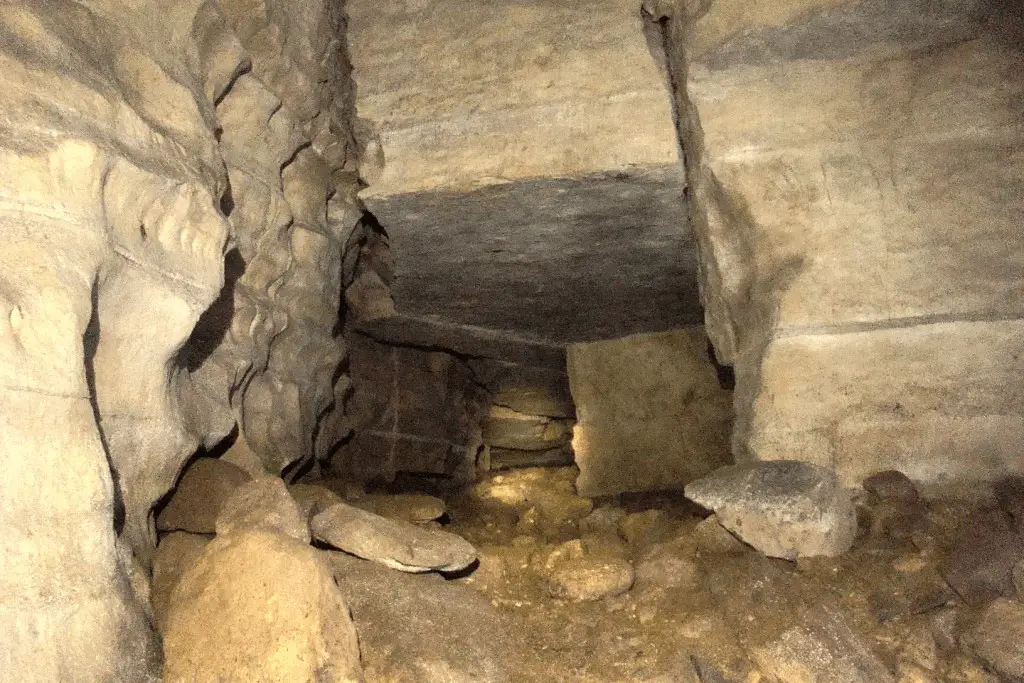
In August 1976, Neil Armstrong, the first man to set foot on the moon, embarked on an enigmatic journey to explore a secret cave system in Ecuador called Cueva de Los Tiles. Over 100 people, including members of the Ecuadorian military, British scientists, and representatives from various universities, joined the astronaut on his quest.
The legend surrounding the cave system suggested that it contained a mysterious metal library, inscribed with an unknown language and believed to hold invaluable knowledge. Some people even speculate that the library contains information from a civilization beyond Earth that influenced the construction of ancient structures like the pyramids.
Armstrong’s expedition partner, Scottish engineer Stan Hall, initially informed him about the potential existence of this ancient underground library. Some people question why Armstrong, a highly respected scientist, would entertain such a notion. Could it be that his experience on the moon sparked his interest in extraterrestrial secrets?
In 1969, over half a billion people watched Armstrong land on the moon. However, rumors persist that the broadcast was interrupted for two minutes during which Armstrong supposedly reported encountering extraterrestrial beings and vehicles on the moon’s surface. NASA has consistently denied these claims, and Armstrong remained silent on the matter.
After returning to Earth, Armstrong’s behavior seemed to change, and he became increasingly private. This shift in personality prompted some to believe that he experienced something extraordinary during his time on the moon. Armstrong’s subsequent journey to Ecuador only added to the intrigue.
In the 1940s, social science professor Petronio Jaramillo claimed to have seen the ancient metal library in the caves when he was just 17 years old. He described thousands of metal books, each weighing around 40 pounds, engraved with mysterious characters and symbols. If true, this discovery would have profound implications for humanity’s understanding of our world and its history.
Despite the challenges posed by the dense jungle, dangerous wildlife, and treacherous terrain, Armstrong and Hall ventured into the cave system in search of the legendary library. They encountered numerous extraordinary chambers and even discovered a burial chamber containing a seated skeleton dating back to 1500 BC, an era when Ecuador was among the most advanced regions in the Americas.
Armstrong never publicly revealed the reasons behind his search for the ancient library, but his increasingly reclusive nature only fueled speculation. In 1994, during a speech at the White House, he made a cryptic remark, saying, “We have only completed a beginning. We leave you much that is undone. There are great ideas undiscovered. Breakthroughs available to those who can remove one of truth’s protective layers.”
To this day, the mystery surrounding the metal library endures, as does the possibility that it may hold secrets connecting ancient human cultures with extraterrestrial civilizations. Eileen Hall, the daughter of Stan Hall, has expressed her desire to continue her father’s and Armstrong’s quest by leading expeditions into the enigmatic caves. The cavern and its potential secrets remain hidden deep within the jungle, waiting to be discovered.


“However, rumors persist that the broadcast was interrupted for two minutes during which Armstrong supposedly reported encountering extraterrestrial beings and vehicles on the moon’s surface.” TWO MINUTES!! So in a span of TWO MINUTES extraterrestrial beings zipped up to TWO Apollo 11 astronauts (yes TWO, they were never more than a few yards away from each other) and did what, handed them an itinerary? Exchanged insurance information? What? I think the vast majority of us are quite capable of determining what does and what does not pass a basic smell test. Jeez!
Since Neil Armstrong never set foot on the moon and in fact, has never been beyond low earth orbit, then no, he didn’t encounter extraterrestrial secrets on the moon.